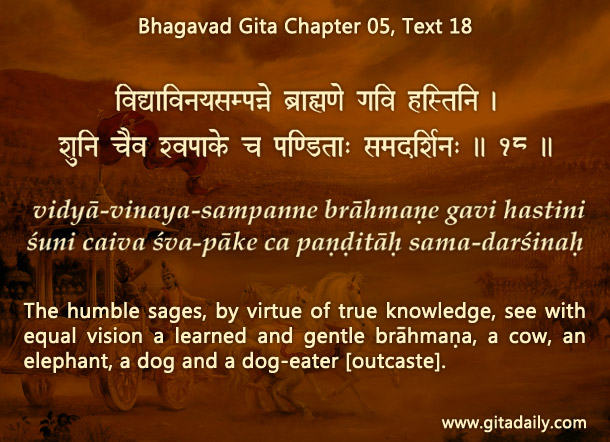We live in a society where knowledge is seen as the means to position, prestige and prosperity. While these can result from knowledge, if they are sought as its primary purpose, then it can easily breed arrogance.
Such conceit is in stark contrast to much traditional and spiritual understanding of knowledge. The wise are humble, indicates the Bhagavad-gita (05.18: vidya-vinaya sampanne brahmane). And it states that humility is a characteristic of knowledge.
Unfortunately, we live in a society where knowledge is seen as a source of pride and privilege. The more we know, the higher we rise above others. With this vision, acknowledging that others may know something we don’t makes us insecure because it implies that the pedestal on which we have placed ourselves has clay feet, that it may topple over and others may rise higher than us.
Actually, the toppling of our pedestal is going to happen, sooner or later. Everything material is temporary. But if we use our intelligence to gain the knowledge that can enable us to raise our consciousness, then we can gradually become more and more spiritual. When we spiritualize our consciousness we understand that looking down at others doesn’t in any way help us grow ahead in our spiritual journey; to the contrary, helping them raise their consciousness will help us grow spiritually, for that is the reciprocal nature of spirituality.
When we internalize spiritual self-understanding and try to chalk a path ahead for us in our life through healthy choices, then knowledge becomes a precious tool that can give us fulfillment far greater than what any amount of prestige ever can.
One-sentence summary:
The purpose of knowledge is not to create a pedestal for us to look down at others, but a path for us to evolve and to help others evolve too.
Think it over:
- How and why might we use knowledge to build a pedestal?
- How and why should we use knowledge to make a path?
- Introspect the purpose that drives you in your pursuit of knowledge.
…
The humble sages, by virtue of true knowledge, see with equal vision a learned and gentle brahmana, a cow, an elephant, a dog and a dog-eater [outcaste].


Hari bol